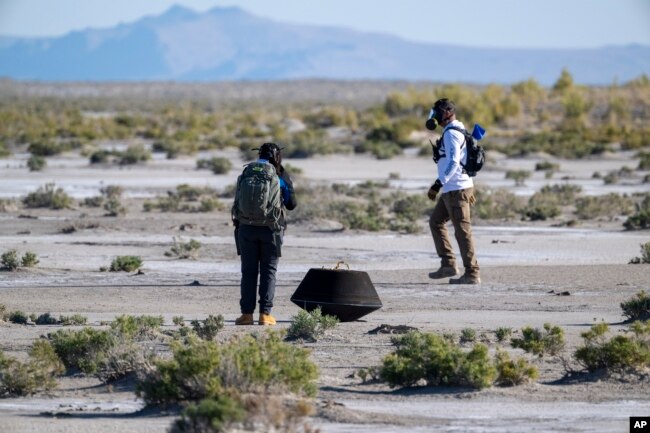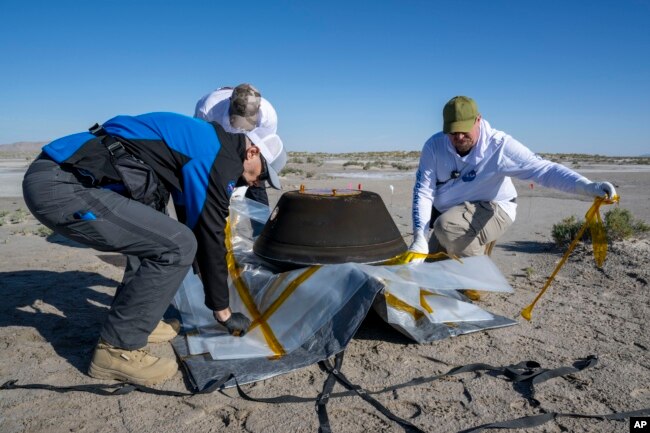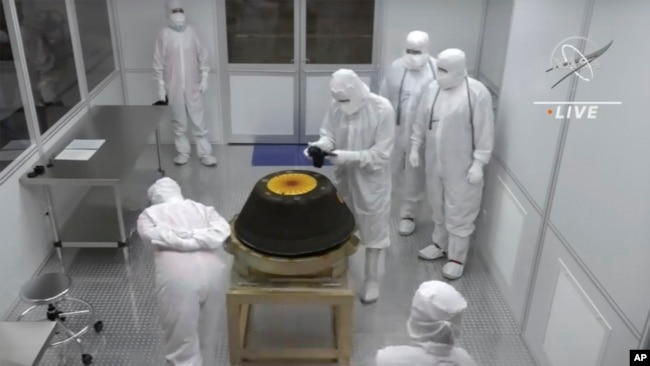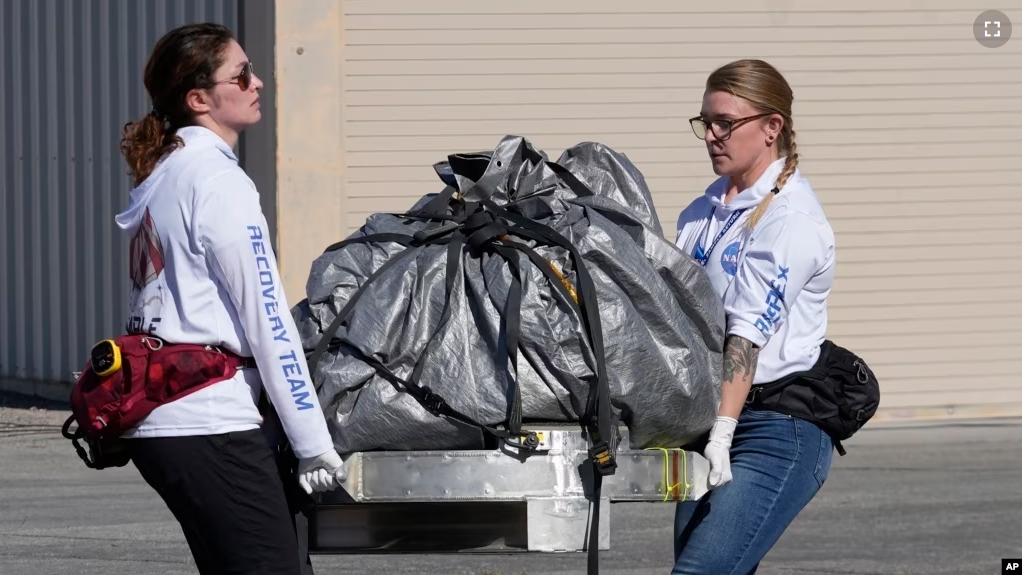A capsule carrying asteroid material captured in space three years ago has arrived safely on Earth.
The American space agency NASA’s Osiris-Rex spacecraft released the capsule Sunday during a pass by Earth. A parachute floated the capsule down to the surface as it landed in a restricted military area in the Utah desert.
NASA officials said the capsule arrived as planned with no observable damage. Within two hours of landing, it was already inside a temporary clean room belonging to the U.S. Defense Department.
The sealed container holding the samples was being flown to NASA’s Johnson Space Center in Houston, Texas. It will then be closely examined in a new, specially designed laboratory.

Dante Lauretta, with the University of Arizona, is the project’s lead scientist. He told reporters he got so emotional after the successful sample recovery that he “broke into tears.” Lauretta said his team cannot wait to start examining the material. “For me, the real science is just beginning.” Lauretta will stay with the samples all the way to Texas.
NASA’s planetary science director, Lori Glaze, said she thinks the samples will be a “treasure” for scientific examination “for years and years to come.”
Osiris-Rex began its mission in 2016. It reached Bennu, about 320 million kilometers from Earth, two years later. The spacecraft completed its asteroid sample operation in October 2020. Its robotic arm touched the asteroid Bennu for a few seconds to produce dust and rock samples for collection.

At the time, scientists said Osiris-Rex had captured much more asteroid material than they had expected. NASA reported in 2020 that some material had spilled out and floated away during the collection process.
Japan is the only other country to bring back asteroid samples from space. Those collection efforts resulted in much less material being captured. The rock and dust samples that arrived Sunday represent the largest space samples reaching Earth besides material returned by NASA in the past from the moon.
Engineers have estimated the capsule holds about 250 grams of material from Bennu. But it will likely take a few weeks to get an exact measurement, said NASA curator Nicole Lunning. NASA said it plans to discuss details about the captured samples next month.

Osiris-Rex is already on its way to another asteroid, Apophis, which it is expected to reach in 2029.
Scientists say the asteroid samples contain remains from the building blocks of our early solar system. Researchers say the samples’ present-day chemistry and mineral makeup are mostly unchanged since forming about 4.5 billion years ago. This means the samples likely hold valuable data about the early development of rocky planets such as Earth.
I’m Bryan Lynn.
Reuters and The Associated Press reported this story. Bryan Lynn adapted the reports for VOA Learning English.
________________________________________________
Words in This Story
capsule – n. the part of a spacecraft that carries people and equipment
asteroid – n. objects made of rock and metal that orbit the sun, but are smaller than planets
seal – v. to fully close a container so that no air or liquid can enter or escape
sample – n. a small amount of something that gives you information about the thing it was taken from
mission – n. a flight by an aircraft or spacecraft to perform a specific task
curator – n. a person who is in charge of the things in a museum or at an organization
